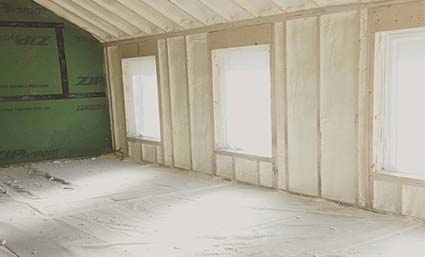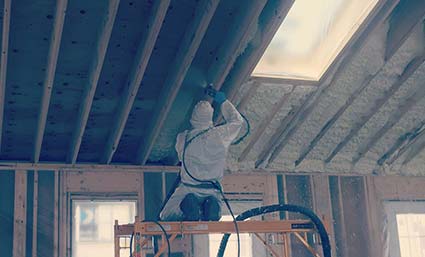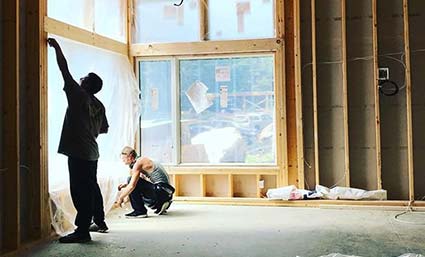Mice and other rodents can be quite troublesome, especially when they’re chewing through wires, insulation, and other materials in your home. Not only does this lead to property damage, but it can also be hazardous by increasing the risk of electrical fires.
That’s where spray foam insulation comes in as an effective solution to combat mice infestations.
But does it really work? Is spray foam insulation rodent-proof and will it keep them out? In this post, we’ll take an in-depth look at the relationship between spray foam insulation and rodents.
An In-Depth Look at Spray Foam Insulation and Rodents
Spray foam insulation is a type of insulation material that expands and fills gaps, crevices, and cavities, creating a barrier to the elements and blocking rodents that could enter the home.
Spray foam insulation is made up of two primary components: polyurethane and isocyanate, which are mixed together to produce a foam that sticks to any surface it’s sprayed on, including walls, ceilings, floors, and even pipes.
However, while this can be a deterrent for pests, this doesn’t necessarily make spray foam insulation rodent-proof.
Does Spray Foam Insulation Keep Rodents Out?
Spray foam insulation is effective in discouraging rodent entry into homes in some cases. This is because spray foam insulation creates a tight seal, making it harder for mice to find ways to enter the house.
Moreover, because no insulation materials are 100% resistant to rodent damage, combining spray foam insulation with other preventive measures, such as eliminating food sources and sealing entry points, can significantly reduce the risk of a pest infestation.
What’s more: many manufacturers design their spray foam insulation products to be rodent-resistant. These products contain an irritant that repels rodents and discourages them from chewing through the foam. However, not all spray foam insulation products are designed this way, so make sure to read the product description and ask questions before purchasing or ask your spray foam insulation contractor.
Can Rodents Chew Through Spray Foam Insulation?
The general consensus among experts is that spray foam insulation is not completely rodent-proof, as mice, rats, and other rodents can still chew through it.
However, unlike traditional insulation that features softer materials, spray foam provides a wide sealant coat with no alimentary components, making it undesirable for rodents to chew or consume.
Ultimately, this does increase security for homeowners or business owners worried about potential rodent damage or contamination of the insulation material itself.
Spray foam insulation can effectively reduce the risk of a mouse and other rodent infestation in your home. While it is not entirely rodent-proof, it’s more challenging for rodents to chew through than other materials, and when they do succeed, it can be easier to detect entry points.
Combining spray foam insulation with other preventive measures, such as eliminating food sources and sealing entry points, can also improve its effectiveness. When purchasing spray foam insulation, look for products that are rodent-resistant for the best possible results.
If your Maine home is in need of new insulation — and an effective rodent deterrent — look no further than Seal It Insulation Systems. Learn more about our spray foam insulation and contact us today for a free quote!











